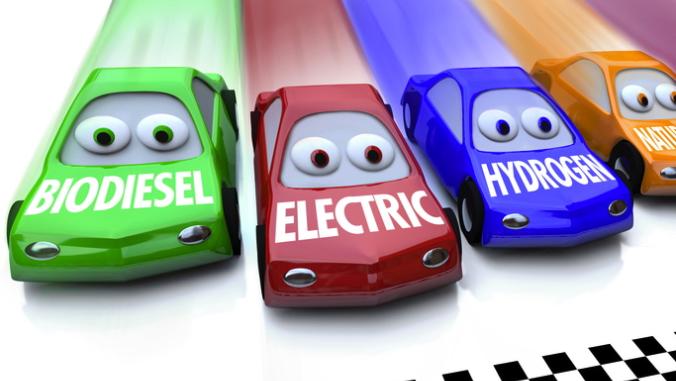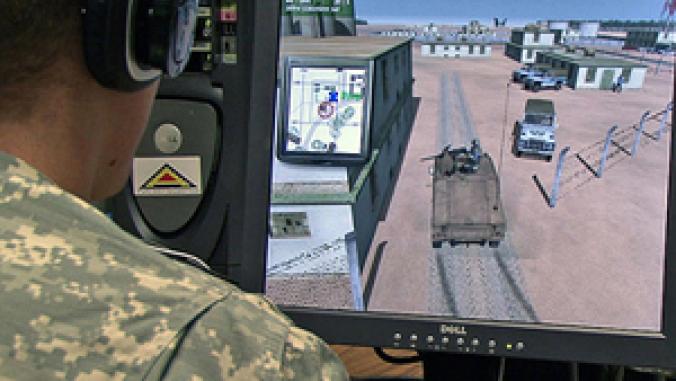Rule No. 1 for Innovation: Have Fun
<p>If innovation could be compared to a four-cylinder engine, fun would comprise the first cylinder, according to Tim O'Reilly, founder of O'Reilly Media. In a speech delivered at the GreenBiz Innovation Forum Tuesday, O'Reilly, dubbed the "Father of Web 2.0," explored some of the common traits of historical innovations and the lessons they offer in relation to sustainability.</p>

The grand feats overcome by the Wright brothers, Charles Lindbergh, Bill Gates and Steve Wozniak shared a common driver.
"When the Wright Brothers were figuring out how to fly, they weren't saying, 'Wow -- we have this opportunity to build the airline industry,'" said Tim O'Reilly, founder and CEO of O'Reilly media. "They were saying: 'This is amazing! You think we could actually get off the ground and fly like a bird?'"
If innovation could be compared to a four-cylinder engine, according to O'Reilly, fun would comprise the first cylinder. In a speech delivered at the GreenBiz Innovation Forum Tuesday, O'Reilly, dubbed the "Father of Web 2.0," shared some of the common traits of historical innovations and the lessons they offer in relation to sustainability.
 "If you know anything about how a four-cylinder engine works, the cylinders fire in order, they don't fire all at once ... So what's the first cylinder? I think it's having fun," O'Reilly said.
"If you know anything about how a four-cylinder engine works, the cylinders fire in order, they don't fire all at once ... So what's the first cylinder? I think it's having fun," O'Reilly said.
He noted that unlike the conventional wisdom that innovation begins with a profit motive, the founders of Apple weren't thinking about building the personal computer industry. "They were just saying, 'We could each have our own computer.'"
The second cylinder is activated when people in the middle of having fun start to think big, O'Reilly said, citing the founders of early Microsoft and Google.
"At the time they launched Google, people were thinking search engines were a failed business," O'Reilly said. "Nobody wanted them."
The traditional elements of business creation represent the third cylinder, including entreprenuers and venture capital. "You start saying, 'What does it take to actually turn this into a real business?" O'Reilly said. "How will we make this thing self-sustaining?"
O'Reilly views the fourth cylinder of innovation as the most important: Creating more value than you capture. He pointed to Apple's Steve Jobs recently celebrating the company paying $1 billion to app development.
"That means that Apple is creating value for an ecosystem," O'Reilly said.
The Los Angeles Times wrote in 1998 that O'Reilly has the ability to spot a technology revolution before it happens. His company published what some call the first popular computer book on the market, in addition to coordinating high-value trade conferences.
"The reason he has so much credibility in Silicon Valley is because he's consistently predicted the future," said Eric Faurot, GreenBiz Group president and chief strategist. "He's consistently helped the future unfold. To me this is a major tipping point and a validation that he's here to help us to figure out how to unfold this future."
O'Reilly put it another way: "What my company really does, which I came to define over time, is we try to change the world by spreading the knowledge of innovators."
Modern day hotbeds of innovation are evident in the do-it-yourself Maker movement, O'Reilly said, where you'll find smart products, such as smart phones, to "dumb stuff made with smart tools."
Open source, Web 2.0, crowd sourcing -- all of O'Reilly's endeavors are based on working together and systems that make it easier for systems to people work together, he said.
"I think that is a profound deep trend that will effect what everyone in this room does," he said. "That is we are building a single global brain and that single global brain is a resource that will enable us to build things like smart supply chains. It will enable us to figure out how to do things smarter."
But don't forget to have fun, O'Reilly reminded the audience.
"That is the challenge that I know you're all working on," O'Reilly said. "I hope that you do it with appropriate seriousness and gravity because it is of course one of the great challenges of our time, but I hope you do with a spirit of fun that will help us invent a future that we're excited about."
Photos by Goodwin Ogbuehi, http://flickr.com/photos/yoshikatsu.





